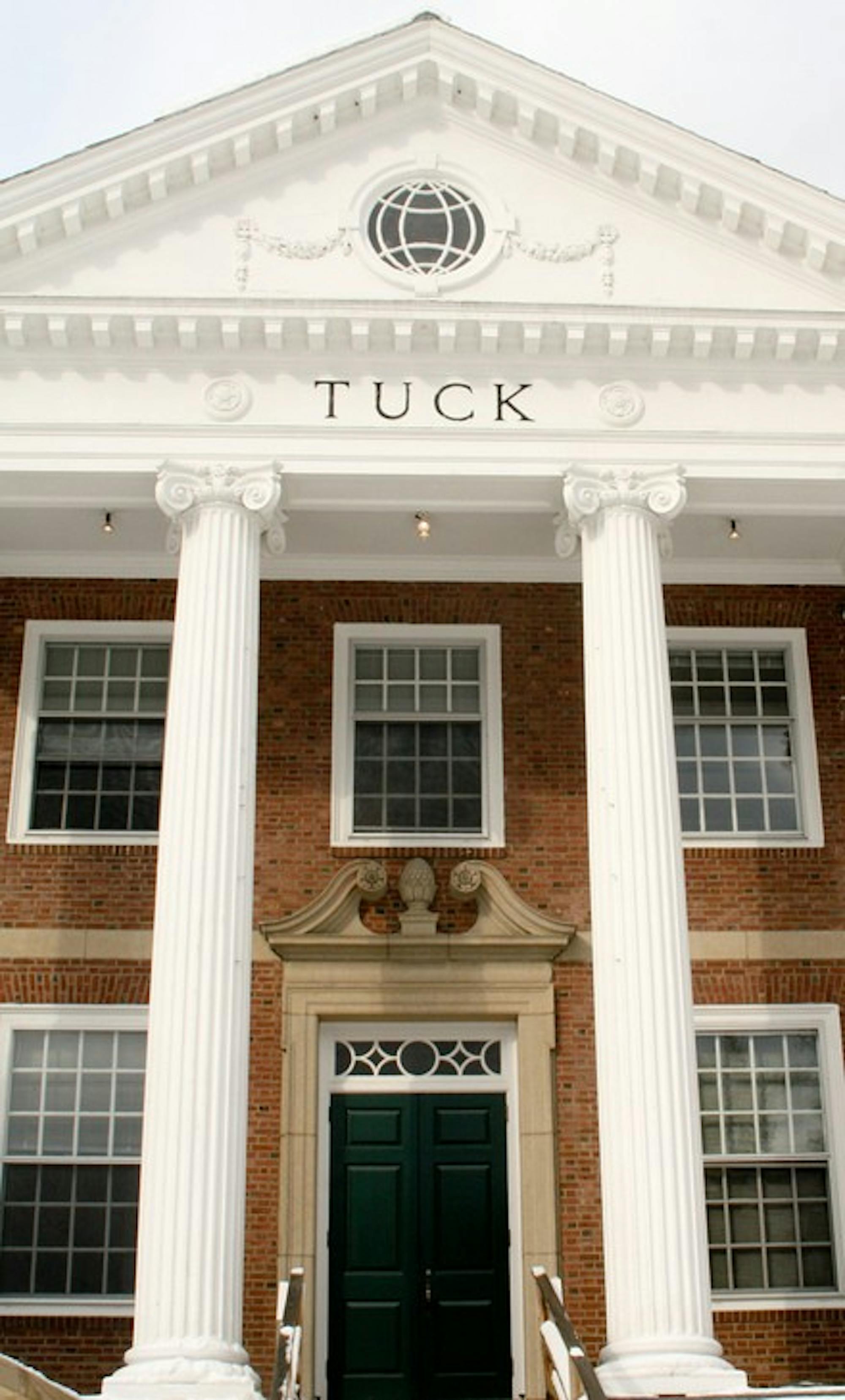The number of women pursuing master of business administration degrees at the Tuck School of Business remains at an "historic level," Tuck Dean Paul Danos told The Dartmouth on Friday. Women now represent 33 percent of the Tuck student body, a percentage that has held steady for the past few years and is comparable to Tuck's peers, he said.
The University of Pennsylvania's Wharton School is about 40 percent women, Wharton MBA admissions director Jackie Zavitz told The Dartmouth. Harvard Business School's incoming class, meanwhile, is 29 percent women, according to The Harvard Crimson.
"We now have the highest ratio of women in our classes than any of the other top business schools, and it is actually one of the largest classes, with over 860 students," Zavitz said.
Most MBA students are in their late twenties, Danos said, which some believe poses a problem for women interested in pursuing the degree who also want to start families. Tuck requires that applicants have five years of post-college work experience before attending the business school.
"Since we require so much experience to get accepted to Tuck, this issue of children and family matters arises for people in their twenties and thirties, and this has an effect on their plans," he said. "But I'm not sure it would make a difference if we admitted people right after college like law schools do."
Tuck was named the second "Most Family Friendly" business school in the country in Princeton Review's 2009 Business School rankings.
Tuck Professor Punam Keller noted that close to a quarter of the full-time faculty at Tuck are women, which could help to attract women to the school and make them feel more comfortable in the classroom.
"There are a couple of things that I think are unique about Tuck," Keller said. "We are known for our team approach to solving business problems, and I believe that women are equal to men when it comes to business acumen and skills, but have an advantage when it comes to emotional intelligence and working with others."
Social marketing and corporate social responsibility courses, which are "designed to help students apply business principles to enhance individual and collective well-being," draw a sizable number of women, Keller said, noting that 85 percent of the students in the social marketing class she taught last spring were women.
Tuck also offers programs and forums for minorities, many designed specifically for women and taught by full-time faculty members, Keller said.
"I just came back less than three weeks ago from Tulsa, where I taught a program through Tuck exclusively for Native American women who owned or managed their own businesses," she said.
The business school is also a member of the Forte Foundation, a consortium of foundations and business schools that seeks to increase the number of female business professionals by helping women to connect with business school and other business opportunities.
"I don't ever remember feeling like a minority at Tuck, in terms of being a woman," Sarah Albert Tu'09 said.
Albert said she was drawn to Tuck because of its emphasis on having a diversity of experiences.
Tuck strives to admit the most diverse classes possible, so that students can learn from others' work experiences and distinct backgrounds, Keller said.




